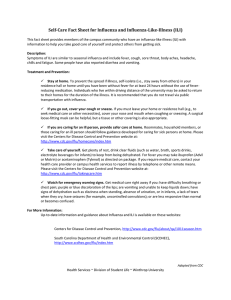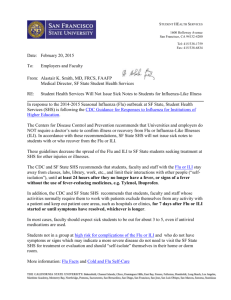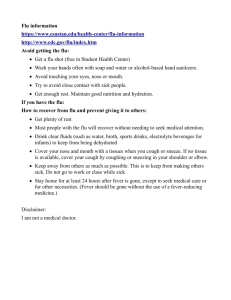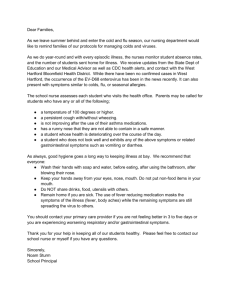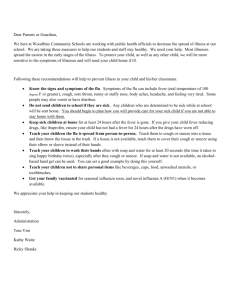Self-Care Fact Sheet for Influenza (Flu) and Influenza-Like Illness (ILI)
advertisement
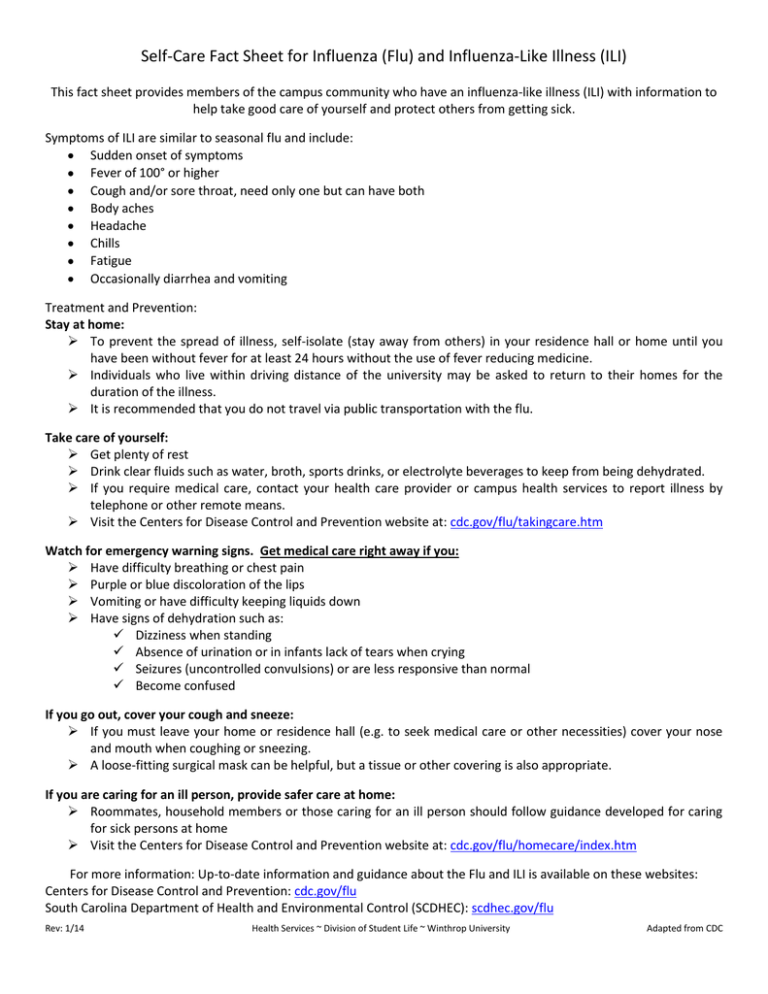
Self-Care Fact Sheet for Influenza (Flu) and Influenza-Like Illness (ILI) This fact sheet provides members of the campus community who have an influenza-like illness (ILI) with information to help take good care of yourself and protect others from getting sick. Symptoms of ILI are similar to seasonal flu and include: Sudden onset of symptoms Fever of 100° or higher Cough and/or sore throat, need only one but can have both Body aches Headache Chills Fatigue Occasionally diarrhea and vomiting Treatment and Prevention: Stay at home: To prevent the spread of illness, self-isolate (stay away from others) in your residence hall or home until you have been without fever for at least 24 hours without the use of fever reducing medicine. Individuals who live within driving distance of the university may be asked to return to their homes for the duration of the illness. It is recommended that you do not travel via public transportation with the flu. Take care of yourself: Get plenty of rest Drink clear fluids such as water, broth, sports drinks, or electrolyte beverages to keep from being dehydrated. If you require medical care, contact your health care provider or campus health services to report illness by telephone or other remote means. Visit the Centers for Disease Control and Prevention website at: cdc.gov/flu/takingcare.htm Watch for emergency warning signs. Get medical care right away if you: Have difficulty breathing or chest pain Purple or blue discoloration of the lips Vomiting or have difficulty keeping liquids down Have signs of dehydration such as: Dizziness when standing Absence of urination or in infants lack of tears when crying Seizures (uncontrolled convulsions) or are less responsive than normal Become confused If you go out, cover your cough and sneeze: If you must leave your home or residence hall (e.g. to seek medical care or other necessities) cover your nose and mouth when coughing or sneezing. A loose-fitting surgical mask can be helpful, but a tissue or other covering is also appropriate. If you are caring for an ill person, provide safer care at home: Roommates, household members or those caring for an ill person should follow guidance developed for caring for sick persons at home Visit the Centers for Disease Control and Prevention website at: cdc.gov/flu/homecare/index.htm For more information: Up-to-date information and guidance about the Flu and ILI is available on these websites: Centers for Disease Control and Prevention: cdc.gov/flu South Carolina Department of Health and Environmental Control (SCDHEC): scdhec.gov/flu Rev: 1/14 Health Services ~ Division of Student Life ~ Winthrop University Adapted from CDC
